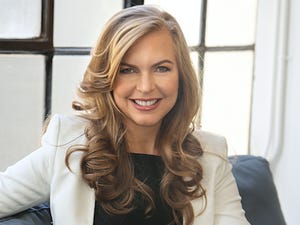Here’s a shocking stat: Most people will spend at least 90,000 hours working over the course of their career — even more for those who don’t retire at age 65. Given that so much of our time is spent working, one would hope that we could make the overall experience fulfilling and maybe even a little bit enjoyable.
Several years ago, I embarked upon a quest to understand how to create peak work experiences while building a career that provides the kind of success and impact that’s meaningful to me. In doing so, I researched the psychology and neuroscience of performance.
I’ve found that many people describe moments of being “in the zone” or, as psychologist Mihály Csíkszentmihályi puts it, “in flow.” In these types of moments, you feel completely immersed in the work you’re doing and have a strong sense of confidence about the skills you’re using. You’re enjoying the process and you have a high level of mastery with the tasks you’re accomplishing. When you’re operating in the zone, work is fun, exhilarating, and meaningful.
But for many people, especially if they’re unhappy at work, this concept can feel elusive. So my work has been about developing a methodology and framework that helps people harness the power they have to uncover their peak work situations — and experience them as frequently as possible.
I call this framework your “Zone of Genius.” Your Zone of Genius is comprised of two essential data points: your genius and your purpose. Your genius is the thinking or problem solving that you’re best at; it’s what allows you to be challenged in the best way possible. Your purpose is the impact — on the world or others — that’s most meaningful to you.
When you know both your genius and your purpose and commit to incorporating them in your career, I can almost guarantee you’ll find your work more engaging and fulfilling.
Ready to get started? These steps will help you discover your Zone of Genius and begin operating within it today.
1. Identify your Zone of Genius
First, try to identify your genius. Think of three moments recently when you were “in the zone” or exhilarated by the thinking you were doing. Write down in detail what was going on in your head. Then, look for patterns within these three examples. What’s the common way of thinking or problem solving that you were doing? See if you can put a name to it.
When it comes to identifying your purpose, you’re going to have to dig deep. Typically, your purpose is linked to a core emotional experience. This requires you to think back on your life story and the various challenges you’ve experienced. We all have a lot of them, but there’s inevitably one that’s a central theme. If you’re struggling to identify it, start observing the moments in which you’re completely fulfilled by the impact you’re having on another person. What is that specific impact?
For example, if you notice that you always help others when they’re in need, and you’re known for how quickly you run to someone’s rescue, it may be that you were never rescued or helped when you needed it most as a child. Therefore, your purpose could be helping people in need. The beauty of this is that you’re already doing it, and it’s an instant way to get more fulfillment in your life (by noticing that you’re doing it and looking for ways to do it more frequently).
We tend to move so quickly through our days that we don’t even notice when we’re having an impact that’s meaningful to us. Put a name to this way of serving others that resonates with you. In the example above, that might be, “Proactively helping people in need.”
2. Start to use your Zone of Genius
Once you have a sense of both your genius and your purpose, look for ways to integrate them into your work. You’d be surprised how easy it is to take almost any job and make it a better job for you.
Try to re-prioritize your workload based on what you’re best at and delegate the tasks aligned with your weaknesses. Then, try to validate the impact you’re having on other people and figure out ways to increase that impact.
Here’s an example: My client Susan thought that in order to do her job well, she needed to be actively involved in everything. In fact, she regularly would go to meetings that her direct reports were also in just in case they needed her input. She was on the verge of burnout and wasn’t enjoying work.
Once she understood her Zone of Genius, she was easily able to see the tasks she was exceptional at — and those that she wasn’t. It allowed her to observe her team through this lens, which made it easier for her to delegate work that aligned with someone else’s strengths.
Once she started stepping back and letting her team do more, she saw two big shifts. First, she started enjoying work more, because she finally had the time to do the big-picture thinking she needed to do. Her team was energized and excited to have more autonomy. On top of everyone’s work experience improving, the efficiency of the team doubled.
3. Build the genius habit
Ideally, once you start operating in your Zone of Genius, you’ll see just how powerful it is — and want to operate within it all the time. To help yourself stay on track, download a copy of my Performance Tracker. It’s like a Fitbit for your performance — a weekly tracker that asks questions about your work habits like, “How much time this week was spent doing enjoyable work?” and “How confident did you feel?”
Answering the questions consistently allows you to be more strategic about using your Zone of Genius at work, while ensuring you’re building behavior habits that really matter for happiness and success.
Once you commit to understanding your Zone of Genius and putting it to work, get ready to say goodbye to boredom at the office and the feeling that you don’t know what you’re best at. Work will start to feel like an extension of who you are — not just a job. That’s the most powerful tool you have for achieving the success you dream about.
Originally published on Business Insider.
More from Business Insider:
Stop trying to make your employees happy — fulfill them instead
I didn’t take maternity leave as a self-employed worker, and I regret it
Follow us here and subscribe here for all the latest news on how you can keep Thriving.
Stay up to date or catch-up on all our podcasts with Arianna Huffington here.


